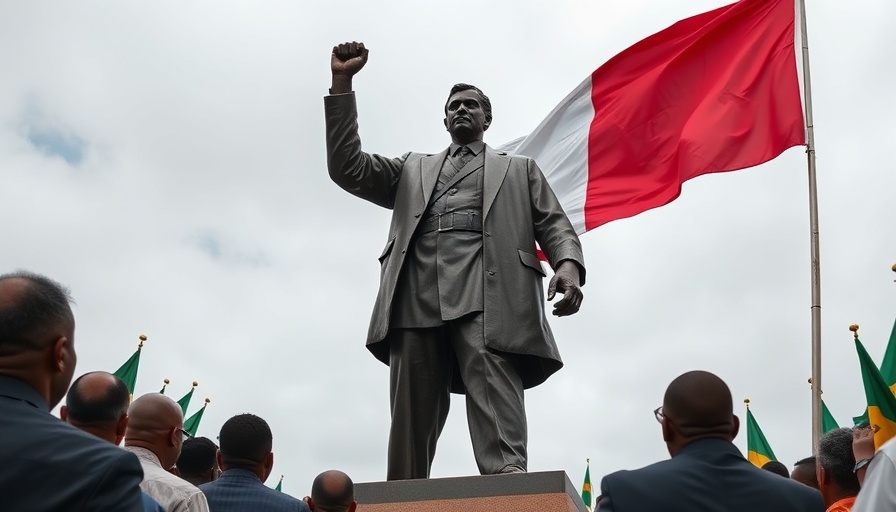
Resurgence of Revolutionary Ideals in Burkina Faso
The legacy of Thomas Sankara, Burkina Faso's revolutionary leader of the 1980s, is being invoked amid rising violence and political instability in West Africa. The recent construction of a mausoleum dedicated to Sankara serves not only as a tribute to his memory but also as a symbol of the Pan-African spirit that resonates with many young Africans today. The collective vision for a united continent is evident in the fervor surrounding this commemorative structure, which attracts both admirers and aspiring leaders, including Burkina Faso's current military figure, Captain Ibrahim Traore.
In Sankara’s legacy fuels Burkina Faso’s new revolution amid rising violence, the discussion dives into political upheaval in West Africa, exploring key insights that sparked deeper analysis on our end.
The New Revolutionary Figures
Emblematic of the new generation of leaders, Traore is viewed as the heir to Sankara's revolutionary ethos. Dressed in a similar uniform and exuding a spirit of nationalism, he portrays himself as a champion against external influences and internal dissent. His message, amplified through social media rather than traditional weaponry, resonates with youth eager for change. However, beneath this veneer of revolutionary passion lies the grim reality of a nation embroiled in violence and chaos, with an ongoing battle against al-Qaeda affiliates threatening to further destabilize the region.
Violence and Governance: A Chaotic Landscape
As the armed conflicts intensify, with al-Qaeda launching coordinated assaults and displacing thousands, critics question the legitimacy and effectiveness of the government’s response. Human Rights Watch reveals alarming trends of ethnic targeting in the military’s operations, raising fears that the current regime not only condones but potentially orchestrates violence against certain ethnic groups. The fall of towns and the looming threat over the capital Ouagadougou underline a pressing crisis that demands scrutiny and reform.
Global Implications and Support
The international dimension of Burkina Faso's struggles complicates the narrative. Recent meetings between Traore and Russian officials signal a shift towards alliances that could redefine power dynamics in the region. Support from an external power raises questions about the motivations behind this relationship and how it might affect the country’s future. As the Sahel becomes a focal point for various geopolitical interests, the path forward remains fraught with challenges that require careful navigation.
Conclusion: A Call for Accountability
Burkina Faso stands at a crossroads, grappling with the legacies of its past while navigating the precariousness of its current situation. As the struggle for identity and governance continues, it remains crucial for both local and international stakeholders to engage in a dialogue centered on justice and reform. For readers seeking to understand these evolving narratives, remaining informed is imperative for holding leaders accountable and pushing for a truly just society.
 Add Row
Add Row  Add
Add 




Write A Comment